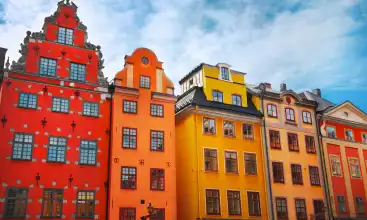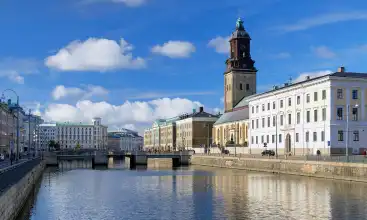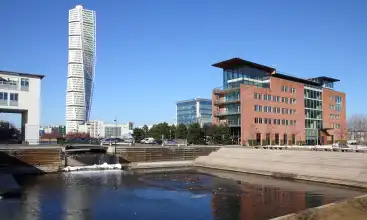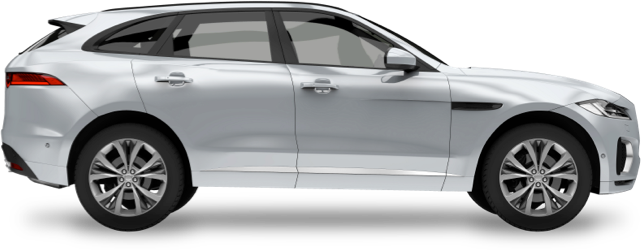- Online car hire since 2005
- Popular countries
- Popular regions
- Popular cities
- Popular airports
- Car hire United Kingdom
- Car hire Italy
- Car hire Spain
- Car hire United States
- Car hire Portugal
- Car hire Poland
- Car hire France
- Car hire Ireland
- Car hire Switzerland
- Car hire Greece
- Car hire Morocco
- Car hire Cyprus
- Car hire Canada
- Car hire Germany
- Car hire Netherlands
- Car hire Croatia
- Car hire South Africa
- Car hire Australia
- Car hire Norway
- Car hire Austria
- Car hire England
- Car hire Scotland
- Car hire Florida
- Car hire Sardinia
- Car hire California
- Car hire Tenerife
- Car hire Sicily
- Car hire Crete
- Car hire Madeira
- Car hire Lanzarote
- Car hire Corfu
- Car hire Malta
- Car hire Majorca
- Car hire Rhodes
- Car hire Fuerteventura
- Car hire Wales
- Car hire Menorca
- Car hire Corsica
- Car hire Azores
- Car hire Gran Canaria
- Car hire London
- Car hire Geneva
- Car hire Malaga
- Car hire Manchester
- Car hire Dublin
- Car hire Orlando
- Car hire Edinburgh
- Car hire Milan
- Car hire Bristol
- Car hire Faro
- Car hire Alicante
- Car hire Lisbon
- Car hire Porto
- Car hire Bergamo
- Car hire Paphos
- Car hire Amsterdam
- Car hire Nice
- Car hire Cagliari
- Car hire Kraków
- Car hire Larnaca
- Car hire London Heathrow Airport
- Car hire Geneva Airport (Switzerland)
- Car hire Malaga Airport
- Car hire Manchester Airport
- Car hire Dublin Airport
- Car hire Orlando International Airport
- Car hire London Gatwick Airport
- Car hire Bristol Airport
- Car hire Edinburgh Airport
- Car hire Faro Airport
- Car hire Alicante Airport
- Car hire Lisbon Airport
- Car hire Porto Airport
- Car hire Bergamo Airport
- Car hire Milan Malpensa Airport
- Car hire London Luton Airport
- Car hire Paphos Airport
- Car hire Nice Airport
- Car hire Cagliari Airport
- Car hire Kraków Balice Airport

Car hire Sweden
Save time and money. We compare the offers of car rental companies in Sweden on your behalf.
- Free cancellation Up to 48 hours prior to the scheduled pick-up time
- Best price guarantee Have you found a better price? Let us know and we will make you a better offer.
- 24000+ pick-up locations Locations around the world

Car hire Sweden
EasyTerra Car Hire Sweden is an independent car hire comparison site. Our site compares prices from well-known car rental companies so that, as a customer, you can always reserve your car with us at a competitive rate.
Car rental offers in Sweden
Whether you're looking for a small rental car or a station wagon for the entire family, we will always have a suitable vehicle at the lowest price. Below are some examples from our selection in Sweden.

-
Budget From£ 14 /day -
Avis From£ 16 /day

-
Budget From£ 16 /day -
Avis From£ 18 /day

-
Thrifty From£ 17 /day

-
Thrifty From£ 21 /day

-
Hertz From£ 27 /day -
Alamo From£ 36 /day -
Enterprise From£ 41 /day

-
Alamo From£ 30 /day -
Enterprise From£ 42 /day

-
Hertz From£ 31 /day -
Alamo From£ 40 /day -
Enterprise From£ 48 /day

-
Alamo From£ 33 /day -
Enterprise From£ 49 /day

-
Budget From£ 11 /day -
Avis From£ 15 /day

-
Budget From£ 15 /day -
Avis From£ 17 /day

-
Budget From£ 16 /day -
Avis From£ 16 /day

-
Budget From£ 16 /day -
Avis From£ 16 /day

-
Budget From£ 17 /day -
Avis From£ 18 /day

-
Europcar From£ 17 /day -
Advantage Rent a Car From£ 41 /day

-
Europcar From£ 19 /day -
Advantage Rent a Car From£ 47 /day

-
Alamo From£ 17 /day -
Enterprise From£ 17 /day -
Hertz From£ 22 /day

-
Budget From£ 20 /day -
Avis From£ 25 /day

-
Budget From£ 14 /day -
Avis From£ 16 /day -
Sixt From£ 28 /day

-
Budget From£ 15 /day -
Avis From£ 18 /day -
Sixt From£ 32 /day

-
Budget From£ 16 /day -
Avis From£ 18 /day -
Europcar From£ 31 /day

-
Europcar From£ 16 /day

-
Budget From£ 17 /day -
Avis From£ 18 /day -
Europcar From£ 34 /day

-
Europcar From£ 17 /day -
Sixt From£ 22 /day -
Budget From£ 25 /day

-
Budget From£ 18 /day -
Avis From£ 20 /day

-
Europcar From£ 17 /day

-
Hertz From£ 17 /day -
Thrifty From£ 21 /day

-
Hertz From£ 17 /day -
Thrifty From£ 19 /day -
Alamo From£ 24 /day

-
Hertz From£ 17 /day -
Thrifty From£ 22 /day

-
Hertz From£ 20 /day -
Thrifty From£ 20 /day -
Alamo From£ 29 /day

-
Hertz From£ 20 /day

-
Hertz From£ 21 /day -
Thrifty From£ 26 /day

-
Europcar From£ 20 /day -
Advantage Rent a Car From£ 67 /day

-
Europcar From£ 22 /day

-
Hertz From£ 21 /day

-
Hertz From£ 23 /day

-
Hertz From£ 19 /day -
Thrifty From£ 21 /day -
Sixt From£ 41 /day

-
Hertz From£ 19 /day -
Thrifty From£ 25 /day

-
Hertz From£ 21 /day -
Thrifty From£ 24 /day -
Sixt From£ 45 /day

-
Avis From£ 21 /day -
Budget From£ 22 /day

-
Budget From£ 22 /day -
Avis From£ 23 /day

-
Hertz From£ 22 /day -
Thrifty From£ 26 /day

-
Hertz From£ 23 /day -
Thrifty From£ 29 /day

-
Alamo From£ 24 /day -
Enterprise From£ 111 /day

-
Hertz From£ 25 /day -
Thrifty From£ 30 /day

-
Thrifty From£ 24 /day -
Hertz From£ 25 /day -
Sixt From£ 32 /day

-
Hertz From£ 27 /day -
Thrifty From£ 27 /day -
Sixt From£ 42 /day

-
Sixt From£ 28 /day

-
Alamo From£ 28 /day -
Enterprise From£ 28 /day

-
Budget From£ 35 /day

-
Sixt From£ 31 /day

-
Budget From£ 31 /day

-
Sixt From£ 35 /day

-
Alamo From£ 40 /day

-
Hertz From£ 29 /day -
Thrifty From£ 35 /day -
Budget From£ 36 /day

-
Hertz From£ 29 /day -
Thrifty From£ 30 /day

-
Hertz From£ 32 /day -
Budget From£ 39 /day -
Thrifty From£ 39 /day

-
Alamo From£ 32 /day -
Enterprise From£ 37 /day -
Sixt From£ 51 /day

-
Hertz From£ 33 /day -
Thrifty From£ 37 /day

-
Hertz From£ 33 /day -
Thrifty From£ 36 /day

-
Europcar From£ 34 /day

-
Hertz From£ 33 /day -
Sixt From£ 36 /day -
Thrifty From£ 38 /day

-
Europcar From£ 33 /day -
Advantage Rent a Car From£ 50 /day

-
Europcar From£ 22 /day -
Alamo From£ 57 /day -
Enterprise From£ 59 /day

-
Europcar From£ 23 /day -
Advantage Rent a Car From£ 56 /day

-
Europcar From£ 24 /day -
Advantage Rent a Car From£ 63 /day

-
Alamo From£ 23 /day

-
Alamo From£ 23 /day -
Enterprise From£ 34 /day

-
Budget From£ 25 /day -
Avis From£ 27 /day -
Hertz From£ 43 /day

-
Budget From£ 23 /day -
Avis From£ 25 /day -
Hertz From£ 28 /day

-
Budget From£ 24 /day -
Avis From£ 24 /day -
Hertz From£ 40 /day

-
Alamo From£ 25 /day

-
Avis From£ 37 /day -
Hertz From£ 41 /day -
Budget From£ 58 /day

-
Hertz From£ 44 /day -
Avis From£ 57 /day -
Budget From£ 61 /day

-
Europcar From£ 60 /day

-
Budget From£ 61 /day -
Europcar From£ 61 /day -
Advantage Rent a Car From£ 121 /day

-
Europcar From£ 63 /day

-
Alamo From£ 61 /day

-
Europcar From£ 64 /day -
Budget From£ 65 /day -
Advantage Rent a Car From£ 173 /day

-
Alamo From£ 65 /day

-
Europcar From£ 68 /day

-
Sixt From£ 164 /day

-
Sixt From£ 159 /day

-
Sixt From£ 178 /day

-
Sixt From£ 179 /day

-
Sixt From£ 183 /day

-
Sixt From£ 185 /day

-
Sixt From£ 237 /day

-
Sixt From£ 243 /day

-
Enterprise From£ 18 /day -
Alamo From£ 18 /day

-
Budget From£ 18 /day -
Sixt From£ 28 /day

-
Hertz From£ 23 /day -
Thrifty From£ 33 /day

-
Hertz From£ 20 /day -
Thrifty From£ 21 /day -
Sixt From£ 41 /day

-
Hertz From£ 21 /day -
Thrifty From£ 29 /day

-
Alamo From£ 24 /day -
Enterprise From£ 24 /day

-
Hertz From£ 22 /day -
Thrifty From£ 26 /day

-
Alamo From£ 23 /day -
Enterprise From£ 23 /day

-
Hertz From£ 24 /day -
Thrifty From£ 29 /day -
Sixt From£ 45 /day

-
Budget From£ 11 /day -
Avis From£ 15 /day

-
Budget From£ 14 /day -
Avis From£ 16 /day -
Sixt From£ 28 /day

-
Budget From£ 15 /day -
Avis From£ 17 /day

-
Budget From£ 15 /day -
Avis From£ 18 /day -
Sixt From£ 32 /day

-
Hertz From£ 17 /day -
Thrifty From£ 22 /day -
Sixt From£ 25 /day

-
Hertz From£ 19 /day -
Thrifty From£ 25 /day

-
Hertz From£ 21 /day -
Thrifty From£ 26 /day -
Sixt From£ 34 /day

-
Europcar From£ 20 /day -
Advantage Rent a Car From£ 67 /day

-
Avis From£ 21 /day -
Budget From£ 22 /day
Popular cities in Sweden



Useful tips for a well-prepared trip
Which insurance should I choose, and what's the deal with the deposit? Read our articles with useful information and tips to ensure you choose the right rental car for you.
Car rental locations in Sweden
EasyTerra Car Hire compares rental car prices at the following destinations

Location information for Sweden
Sweden is best explored by rental car. EasyTerra Car Hire has over 220 pick-up locations in Sweden. This means there is always a pick-up location close to your destination.
Most popular car hire locations in Sweden
Introduction
Sweden is the biggest Scandinavian country. The country is known for its natural beauty: vast areas of pine trees, numerous large lakes and long rivers. The country has a number of impressive cities, like the capital Stockholm. This city was even named Cultural Capital of Europe in 1998. Sweden offers its tourists space, quiet and a wonderful nature. Sports lovers can enjoy cycling and hiking tours, canoe trips or even snow mobile safaris!
History
More than two thousand years ago, various people lived in the modern day Sweden. The Goths lived in the south of the country. The Svaer lived in the other parts of the country. In the eight century the Svaer King forced the Goths to subject their power. The country then became ‘Sverige’ and the population was known as ‘Svenskar’.
In the Viking era (800-1050) there were many raids. The European feared the Vikings would seize different parts of Europe. At this time a number of trading posts were founded in Sweden, such as Birka, Gotland and Sigtuna. The Swedish also came into contact with Christianity.
The next period of combat was between the Scandinavian countries Denmark, Sweden and Norway. In 1323 Finland was conquered by Sweden. Finland was a part of Sweden for almost five centuries.
In 1397 Sweden merged with Denmark and Norway in the Kalmar Union. The countries were still independent, but were united under one monarch headed by the Queen of Denmark, Margaret I. Her successor was Eric VII of Denmark (also her cousin) and he became king of all three countries.
The union was not a success for long, and led to many conflicts. Sweden did not agree with the centralization of power in Denmark. The Swedish farmers felt unfairly treated by the nobles and Danish landowners. The conflict between Denmark and Sweden lasted for seventy years.
In 1521 Sweden was again in revolt, this time led by Gustav Wase. He was crowned king and declared independence in 1523. This was the end of the Union. Norway stayed a part of Denmark until 1814. The end of the Union didn′t mean it was the end of the wars between Denmark and Sweden. Sweden conquered various areas and the country was a great power.
In the eighteenth century the tide turned. Sweden was attacked from several sides and had to cede with a great part of the conquered territories. Finland came into the hands of the Russian Tsar, Peter the Great. The Swedish king Gustav IV was subsequently denounced by the Swedish Diet (the parliament).
In the nineteenth century the relationship between Sweden and Denmark improved. During World War I Sweden remained neutral. Also during World War II they were initially neutral. The country did, however, stand up when the German soldiers on furlough travelled through Sweden from Norway. The neutrality of Sweden was therefore questioned.
Sweden has always remained neutral in political terms. The country joined the UN and the European Free Trade Association (EFTA), but was not a member of NATO and the EC. In 1995 Sweden joined the EU.
Society and culture
Sweden has over nine million inhabitants. It′s a sparsely populated country and the population isn′t equally distributed across the country. The most residents (about 85%) live in the urban areas around Stockholm, Göteborg and Malmö. The north of the country is by contrast extremely sparsely populated. There are talks about a density of three inhabitants per km². About 90% of the residents are Swedish. The rest are Norwegians, Sami (from Lapland) and Finns.
About 90% of the Swedish population is a member of the Evangelical-Lutheran state church. Other inhabitants are Roman Catholic, Orthodox Christian or Baptist. A small percentage of Muslims, Jews, and Buddhists also live there. Most of the Swedish population only attends church on a special occasion (like a wedding or baptism).
Almost all inhabitants speak Swedish. This language belongs to the Germanic languages. In the north and west of the country there are some similarities to the Norwegian language; in the south the influence is noticeably Danish. The minorities still speak their own language (such as the Sami). Furthermore, the Swedish also generally speak German and English.
The culture of Sweden is similar to the Danish and Norwegian cultures. The most typical Swedish holidays have to do with the changing of the seasons. A famous Swedish tradition is Midsummer. It′s the longest day and the arrival of summer is celebrated. Across the country people decorate a maypole (a long pole with triangle and two rings at the top). The people sing and dance around the maypole. On December 13, Lucia fest is celebrated. A girl is chosen to wear a white dress and a wreath with candles on her head. On April 30 the return of spring is celebrated. People light big fires, Swedish tales are told and songs are sung. The festival is called Walpurgis Night.
The Swedish population generally likes sport. A famous event is the Svenska Rally, where fast cars race each through the snow. Skiing, skating, soccer, cycling and athletics are also popular sports in Sweden. Sweden has also produced well-known writers. Examples are Marianne Fredriksson and Astrid Lindgren. Lindgren became world famous with the youth novel ‘Pippi Langkous’. The famous pop group ABBA is also from Sweden.
Political situation
Sweden is a constitutional and parliamentary monarchy. The king of the country has only a representative, symbolic function. The country is run by the cabinet and parliament (Riksdag). The parliament seats 349 members and appoints the prime minister. The members of parliament are chosen democratically for a period of four years. All Swedish citizens of eighteen and older have voting rights.
Carl XVI Gustaf has been the king of Sweden since 1973. He always hands over the Nobel Prize, and has thus become internationally known. Frederick Reinfeld is the prime minister of the country since 2006. The politics in Sweden is known for its liberal character. People strive for equality towards all individuals. The government consists of four right parties which together is called the ‘Alliance of Sweden’. The four parties in this alliance are the Moderate Party, Center Party, Liberal People´s Party, and the Christian Democratic Party. Prime Minister Reinfeldt is part of the Moderate Party.
Economy
In the nineteenth century Sweden was mainly an agricultural country. Compared to other European countries it was very poor. Today Sweden is one of the most prosperous countries where incomes are relatively high. The business world plays an important role for the Swedish economy. The country has a free market economy and less than 90% of all industries are owned by private entrepreneurs.
Thanks to the large forest area in Sweden, the country is the largest timber producer in Western Europe. The timber production is especially high in the north of the country. In the south many crops are grown. Many cattle ranches are also found here where cattle, sheep, pigs and poultry are kept.
The manufacturing industry is also very important for the Swedish economy. Major industrial sectors are the metal and electrical industries and the wood processing and paper industries. Trade plays a major role for the economy. Some major export products are electrical equipment, transport equipment, paper and wood. Food, petroleum, iron and steel are major import products. The countries with which Sweden trades the most are: Germany, Great Britain, the United States, Denmark, Finland and Norway. Several large retail chains from Sweden have become internationally known. Examples are Ikea and H&M.
The currency of the country is the Swedish Crown (SEK). One Swedish Crown is approximately eleven Euro cents.
Geography and climate
Sweden is the largest Scandinavian country and is located between Norway and Finland. Sweden has a total area of almost 441,000 km². The country has an elongated shape. Several large islands belong to Sweden: Gotland, Öland, Orust, Hisingen and Värmdön.
Sweden is divided into three parts: Norrland, Svealand and Götaland. Norrland is the northernmost part of Sweden. The area is mountainous and dotted with many forests. Some large cities in the area are Gävle, Sundsvall, Östersund, Umeå en Luleå. Svealand is the middle part of the country. This region is the capital of Sweden. The capital city Stockholm is also in the area. The cities Karlstad and Uppsala are also in Svealand. Götaland is the southernmost part of the country. In this hilly area you will find the cities Jönköping, Norrköping, Linköping and Göteborg.
Characteristic of the Swedish landscapes are the many pine forests. The country is also privileged to have as many as 96,000 lakes. The Vänern (5,655 km²) is the largest lake. It is also the third largest lake in Europe! The highest point in Sweden is located in the north. It is the Kebnekaise Mountain, with a height of 2,104 meters. This mountain belongs to the Scandinavian Mountains. There are also many rivers. The longest is Göta älv.
The far north of Sweden has a polar climate. There is a lot of snow and rain. The temperature here is very low and in the winter the sun doesn′t rise in some places. The middle part of the country is characterized by a continental climate. This includes hot, dry summers and cold winters. In the south a maritime climate prevails. Much rain falls here, and the snow doesn′t stay for long.
Specialties of the Swedish climate are the midnight sun and the northern lights. In the far north, near the North Pole, the sun doesn′t set on the night of June 21 to 22. This natural phenomenon is also observed in the rest of Sweden. In the winter the sun doesn′t rise here at all. The northern lights are a bright colorful glow, visible on cold nights. Beautiful moving colored arcs and rays emerge.
Traffic and infrastructure
There are many ways to travel to Sweden. Between Denmark and Sweden a sixteen kilometer long bridge was built across the strait of Oresund. The Oresund Bridge connects Copenhagen and Malmö. The bridge consists of a highway and a railway. You can also choose to visit Sweden by ferry. These boats sail to and from Germany, Denmark, Finland, Poland and Iceland. Major seaports are located in Göteborg, Hälsingborg, Malmö and Stockholm.
Naturally, it′s also a possibility to fly to Sweden. There are three airports in Stockholm: Arlanda airport, Skavsta airport and Bromma airport. Other major airports are Malmö airport (Sturup airport), Göteborg airport (Landvetter airport). There are several airlines operating domestic flights. Examples are Scandinavian Airlines System (SAS) and Skyways.
The Swedish railway network is extensive and the trains are comfortable. The railways are owned by SJ (Statens Järnvägar). The places that are not accessible by train can be visited by bus. There are many bus connections between the major cities in Sweden. Travelling by bus is relatively cheap. Examples of Swedish bus companies that connect major cities are Swebus, Svenska Buss and Säfflebussen.
The Swedish road network is about 210,760 km long. The maximum speed on Swedish freeways is often 100 km/h. The speed limit on Swedish highways is usually 70 or 90 km/h. The road network is well maintained and travelling with a car is also a good way to see much of the country. Please note that some roads in Sweden require winter tires. This is the case when a layer of loose snow lies underneath hard ice. In Sweden people often drive with winter tires under the cars from October to April.
Time zone
Sweden has a time zone of GMT +1. This is the Central European Time (CET). Summer time is from April to October. Clocks are set ahead.
Food and drinks
Sweden has several national delicacies. An example of a typical Swedish dish is Köttbullar. These are small, spicy meatballs often eaten in combination with mashed potatoes and a scoop of jam. In Sweden they often cook extendedly on special holidays. During the Midsummer Night Festival it′s common to eat potatoes with herring and sour cream. During Lobster Festival, boiled river crayfish is eaten. Another Swedish delicacy is Ärtsoppa med Pannkakor, or split pea soup with pancakes. The pancakes are usually smeared with jam. Smörgåsbord is also a famous Swedish meal. It consists of hot and cold dishes. Fish is a popular ingredient: various types of herring, salmon, sardines, shrimp, crab and so on. Furthermore, many pies, bread and potatoes are eaten. Smörgåsbord is like a buffet where all appetizers are placed on a table and everyone can dish up as he or she likes.
In Sweden you have to pay a lot for alcoholic beverages. If the drink contains more than 3.5% alcohol, it may only be sold in state stores. Light beers are available in supermarkets or gas stations. Aquavit is a popular drink in Sweden. It′s a kind of gin that is often drunk with meals.
Accommodation
In all Swedish major cities there are many hotels. In the smaller places many hotels are also to be found, only the choices here are limited. It is also possible to rent a holiday home. These are rented out by both organizations and individuals. In the winter sport areas you can rent out cozy chalets. A cheap way to spend the night is to sleep in a youth hostel (vandrarhem). STF (Svenska Turistföreningen) and SVIF Sveriges Vandrarhrm i Förening) are the two major Swedish youth hostels. In the summer many tourists choose to go camping. Sveriges Camping- & Stugföretagares Riksorganisation (SCR) is the trade association for camp sites. This organization runs about 600 of the 750 camp sites in Sweden. You need a special pass to stay at one of these sites, namely the ‘Camping Card Scandinavia’. Tourists that want to stay the night in a unique way can opt for an ice hotel. You sleep on a bed made of snow and ice. This way of accommodation is amongst others possible in the Swedish Lapland.
External resources
For more information on Sweden, we recommend Google and the following sources:
Practical information
-
CurrencySwedish krona
-
Driving directionRight
-
City speed limit50 km/h
-
Freeway speed limit110 km/h
-
LanguageSwedish
-
Popular car categoryCompact
What most people want to know
The following questions and answers are a selection of the most popular questions. If you do not find the answer to your question, have a look at the Frequently Asked Questions page or contact us.
- Thrifty
- Alamo
- Europcar
- Enterprise
- Avis
- Budget
- Hertz
- Sixt
- Keddy By Europcar
- Green Motion
- MABI
- Red Spot Car Rental
- Advantage Rent a Car
- National Car Rental
- Rent a star
- CarRent.bg
- Your Rent
- McRent
- Touring Cars
- ACE Rent A Car
- Dollar Rent a Car



